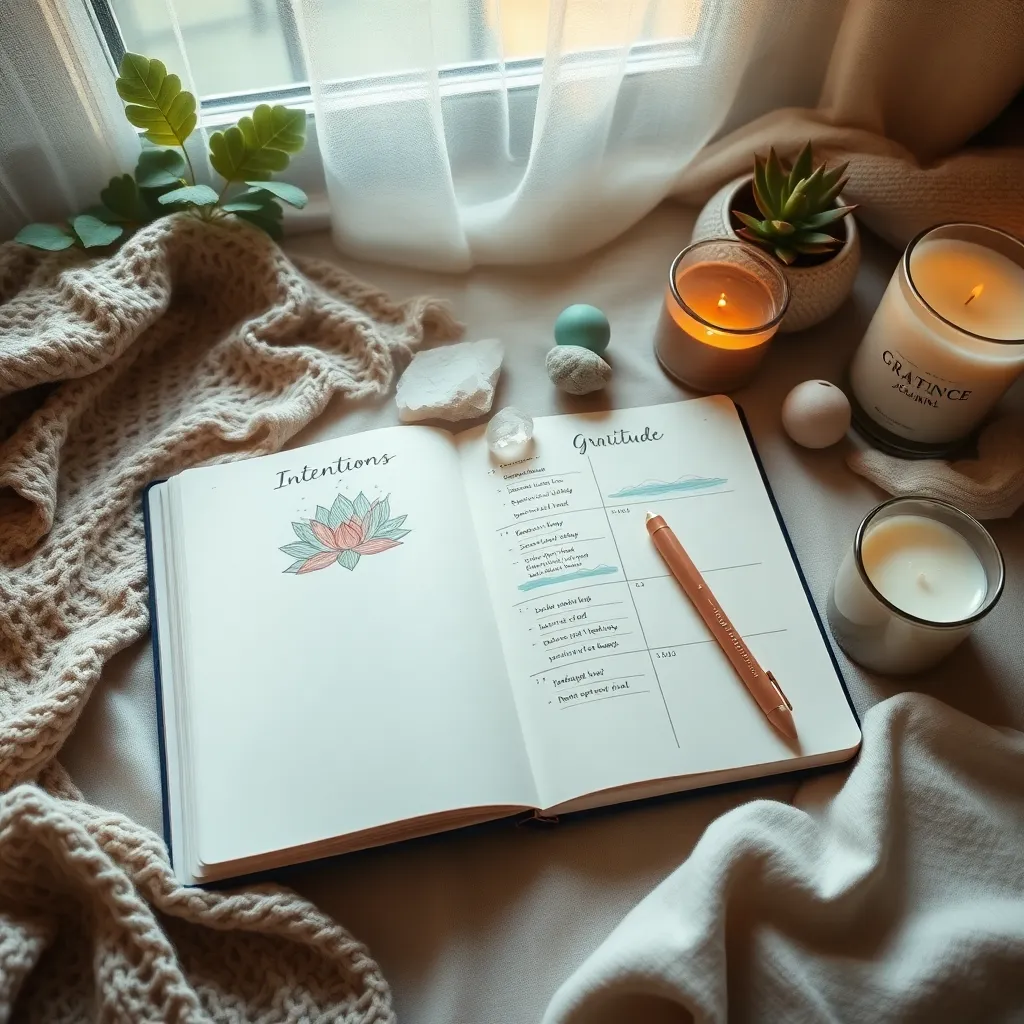Journaling is a gentle companion in your healing journey, offering clarity and emotional release. It nurtures self-awareness and helps you process experiences with kindness.
Inside, find transformative prompts to cultivate peace and resilience. Embrace a path to understanding and self-acceptance.
Reflect on Daily Gratitudes

Begin each day by listing three things you’re grateful for. This practice shifts focus from stress to positivity, enhancing mental well-being. Feel the gratitude as you write, allowing joy to blossom.
In the evening, reflect on moments of gratitude. Use prompts like:
- What made me smile today?
- Who am I thankful for today?
These reflections deepen self-awareness and foster a sense of peace.
Track Emotional Triggers Regularly

Identifying emotional triggers is key to understanding your reactions. Regularly jot down moments that spark intense feelings. Note the situation, your response, and any patterns.
To deepen awareness, ask yourself:
- What was I feeling right before this?
- How can I respond differently next time?
These insights can guide your healing journey.
Visualize Healing with Art

Embrace healing by creating art in your journal. Use colors and shapes to express emotions. Draw your feelings when words fall short; let art articulate your inner world.
Try these prompts:
- Sketch a soothing memory to revisit during stressful times.
- Paint your current mood with abstract colors and forms.
Let your creativity guide your healing journey.
Set Intentions for Inner Peace

Begin by setting a daily intention that fosters inner peace. In your journal, write: “Today, I choose peace by…” followed by a specific action or mindset. This anchors your day in tranquility.
Reflect each evening with a simple check-in: “How did I cultivate peace today?” This reinforces your intention and helps identify peaceful moments. By consistently noting these, you nurture a habit of calm.
Explore Feelings through Free Writing

Try free writing to unlock emotions. Set a timer for 5 minutes and write continuously without judging your thoughts. This helps in releasing pent-up feelings and gaining clarity.
Use prompts like, “Today, I feel…” or “What I need most right now is…” to guide your writing. These prompts encourage deeper reflection and emotional discovery.
Conclusion: Creating Beautiful Outdoor Spaces
In navigating the intricate tapestry of relationships, mental health journaling emerges as a beacon of healing and growth. We’ve explored five pivotal concepts to fortify your bonds: self-awareness, which encourages introspection and understanding; open communication, the cornerstone of any thriving relationship; empathy, the bridge that connects hearts; gratitude, the practice that enriches your connections; and conflict resolution, the skill that transforms disagreements into opportunities for growth.
As a tangible next step, dedicate just ten minutes today to journal about one of these concepts, reflecting on how it manifests in your relationships. This small investment can yield transformative insights.
Remember, nurturing relationships is an ongoing journey, and having this guide at your fingertips will serve as a valuable resource. Bookmark this article for when you need a reminder of these essential practices.
Looking forward, embracing these journaling ideas can pave the way for deeper, more fulfilling relationships. Empower yourself with the tools to thrive, and watch as your relationships blossom in ways you never imagined. Save this article now, and let it be your companion in achieving lasting relational success.

